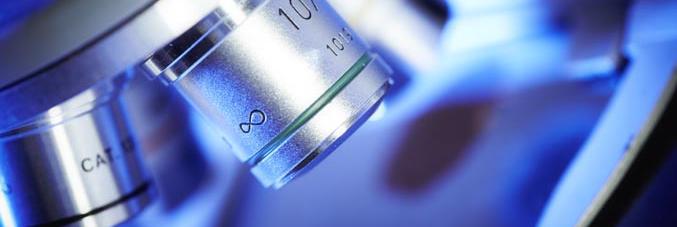
Regenerated tissue, thanks to a new gel
16.12.2019
A study by an international group of researchers led by Nicola Elvassore of the University of Padua and Veneto Institute of Molecular Medicine (VIMM) and Paolo De Coppi of the London based Great Ormond Street Institute of Child Health was recently published in Nature Communication. The group based at the University College London (UCL GOS ICH) developed a new gel capable of growing human tissue in the form of organoids that includes a compatible technique to be used for human treatments.
Grown from stem cells, organoids are structures generated in the laboratory that self-organize giving shape and function to tissues. Although the organoids present considerable potential in the replacement and repair of damaged or diseased tissue, the gels currently used for cultivating human organoids have proven to be unsuitable for use in patients.
To combat this issue the international team of researchers developed an extracellular matrix gel (ECM) using decellularized pig intestinal tissue. This new ECM gel supports organoids cultures for the use in human treatment. The study also opens the idea to develop a wider range of organoids suitable for use in patients.
"The hydrogel ECM of decellularized tissue provides the same level of support to stem cells in the organoid culture of synthetic gels, but can only be obtained in a standardized and controlled way, allowing its use in a clinical environment,” says Nicola Elvassore, last co-author of the research.
"There is enormous potential for organoids to benefit from the sector of regenerative medicine and to improve the way in which we treat complex conditions, says Paolo De Coppi, Consultant Paediatric Surgeon at GOSH and Head of Stem Cells and Regenerative Medicine at UCL ICH. “Our results open important perspectives on the use of tissues obtained from stem cells for the treatment of patients in different clinical conditions. This study could address new applications of organoids."
The gels used in the development of organoids play an important role in determining the characteristics of the final tissue produced. The researchers found that ECM hydrogel could support cell growth, not only in small intestinal tissue, but also in the liver, stomach, and pancreatic tissue. "The hydrogel ECM is able to reproduce the viscoelastic properties of soft tissues, allowing the expansion and differentiation of organoids.” concludes co-author of the publication, Monica Giomo of the Department of Industrial Engineering of the University of Padua.
Their results mark an important step towards the possibility for doctors to use laboratory-made organoids in the clinical setting. The research was made possible thanks to the University of Padua STARS funding programme and TWINNING program of the Department of Industrial Engineering. As well as the generous support by the Oak Foundation through the Great Ormond Street Hospital Children's Charity, and the Horizon 2020 funding on the INTENS project (INtestinal Tissue ENgineering Solution) for children with Short Bowel Syndrome.
The research was conducted by a team of researchers at VIMM (Veneto Institute of Molecular Medicine), the University of Padua, UCL GOS ICH, Francis Crick Institute, ShanghaiTech University, the Royal Netherlands Academy of Arts and Sciences, the University Medical Center Utrecht, Princess Maxima Center for Pediatric Oncology Netherlands, and the Telethon Institute of Genetics and Medicine



